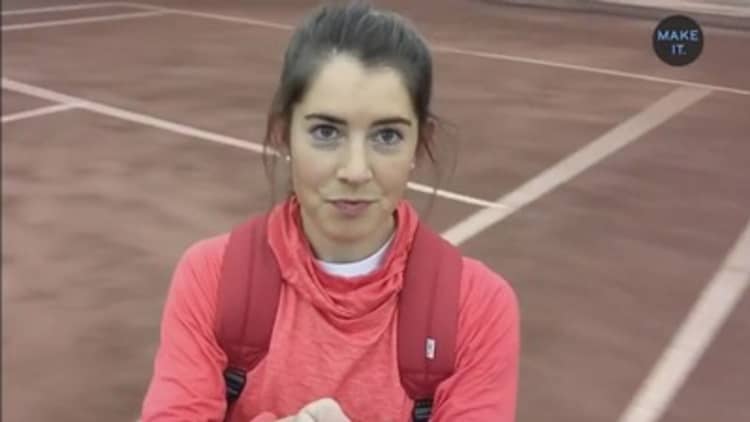The world of personal finance can seem overwhelming. Saving, investing, 401(k)s, mortgages, insurance ... it's a lot. But it's not actually too difficult to start making smart money decisions that will set you up for a successful future.
Take a cue from regular people like Derek Sall, who paid off more than $100,000 in debt before turning 30, or Justin and Kaisorn McCurry, who retired in their 30s.
Below, CNBC Make It has rounded up some of the best lessons we've learned from real people who've saved thousands. Follow their tips and not only will you be on your way to building wealth, but you'll feel good about making smart choices.
Skip the credit cards — use cash instead
CNBC Make It reporter Kathleen Elkins went on a "cash diet" for two months and allotted herself $60 a week to spend on everything that wasn't rent and her electric bill. She recorded every dollar she spent in a spreadsheet so she could see exactly what she was buying and where she could make cuts.
After those eight weeks were up, Elkins had saved $1,000 more than she usually does in just two months.

Pay yourself first
A couple who realized they had spent $30,000 dining in one year missed out on the opportunity to do one crucial thing before digging into their meals: Invest in themselves before anything else.
Most experts recommend setting aside about 10 percent of your income in a 401(k) or other retirement account, especially if your company matches your contributions.
Don't bother skipping coffee — think bigger
Self-made millionaire Grant Cardone lays down the law: You can't just skip a $3 cup of coffee and expect to be rolling in dough within a year, he says. Instead, set really high savings and earnings goals for yourself.
"I never looked to get rich quick, but I did look to get rich," he writes.

If you can, generate two incomes (or more!)
Okay, we get it. You're not Jay Leno or making the kind of money Leno makes. But you might be in a position to start forming good financial habits, like Leno did as an unknown comedian.
"When I was younger, I would always save the money I made working at the car dealership, and I would spend the money I made as a comedian," he told CNBC Make It. "When I started to get a bit famous, the money I was making as a comedian was way more than the money I was making at the car dealership, so I would bank that and spend the car dealership money."
He kept up the habit. When he started hosting NBC's "The Tonight Show," he booked himself hundreds of comedy gigs. His gig money became his spending money and his late night money went to the bank. To this day, he says he still hasn't spent a dime of his "Tonight Show" cash.
Automate everything
"Automation is essential," writes Grant of Millennial Money, who went from having $2.26 in his bank account to $1 million in just five years.
He continues: "When I first started saving and investing, I was a little more old school — I was trying to invest as much as possible into the online savings accounts I had set up, and it was a pretty manual process. Now, one of the biggest recommendations I make is to automate as much of your savings as possible."

Figure out how much you actually need
This couple saved $1 million in four years so they could retire by age 43. How did they do it? Because they weren't happy at work, they preferred to be frugal to have the opportunity to leave their jobs. So they spent only what they needed to spend and saved the rest — no exceptions.
If you figure out what really makes you happy and where you can cut back, you too can curb your spending and maybe one day achieve your own financial freedom.
Need more inspiration to save more and spend less? Check out:
- 6 ways to save more money without trying too hard
- 5 tips to save more money, from ordinary people who have paid off thousands
- 10 small things to give up if you want to save more money
Like this story? Like CNBC Make It on Facebook.
Don't miss: Americans agree on the best way to invest money—but they're wrong




